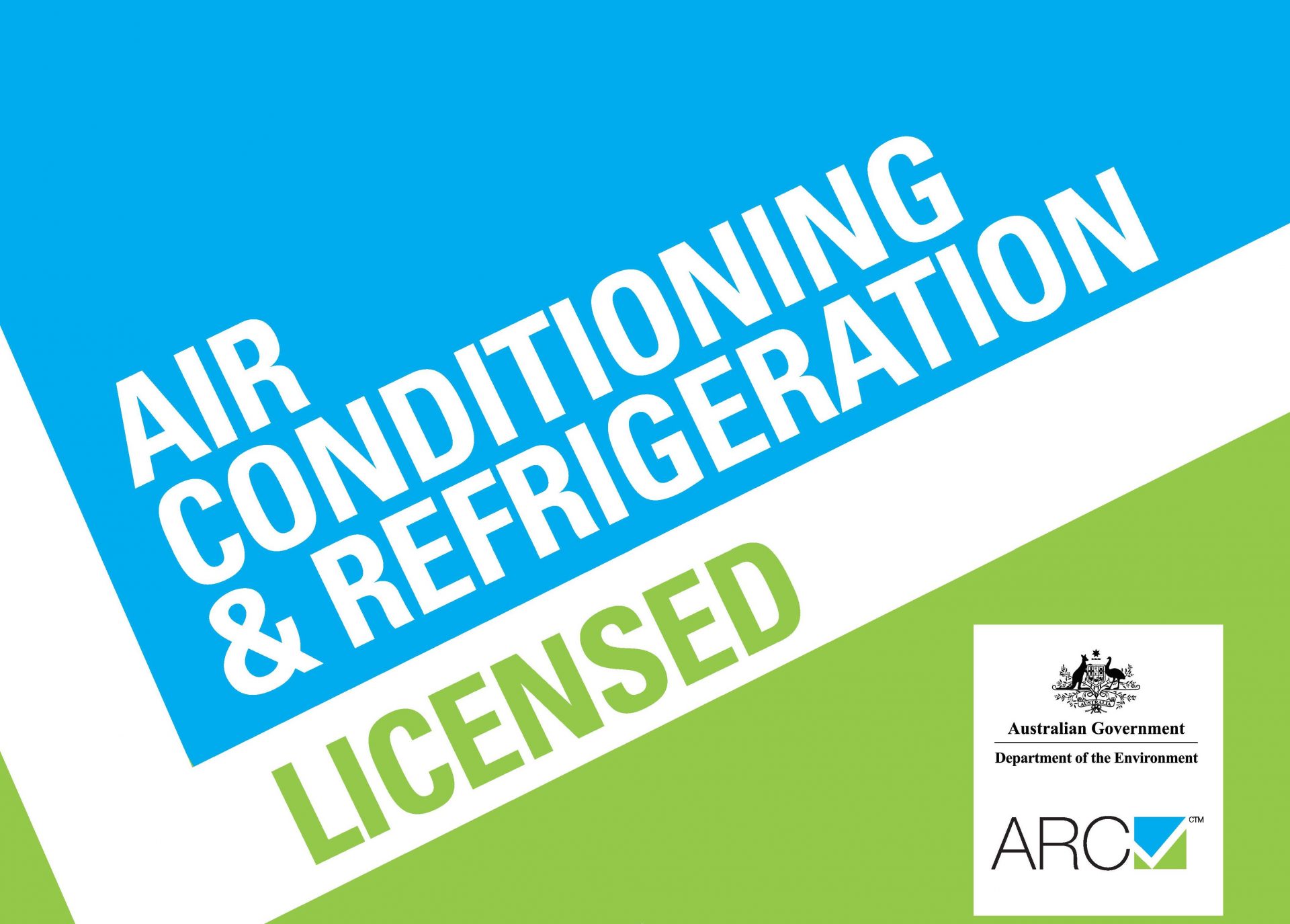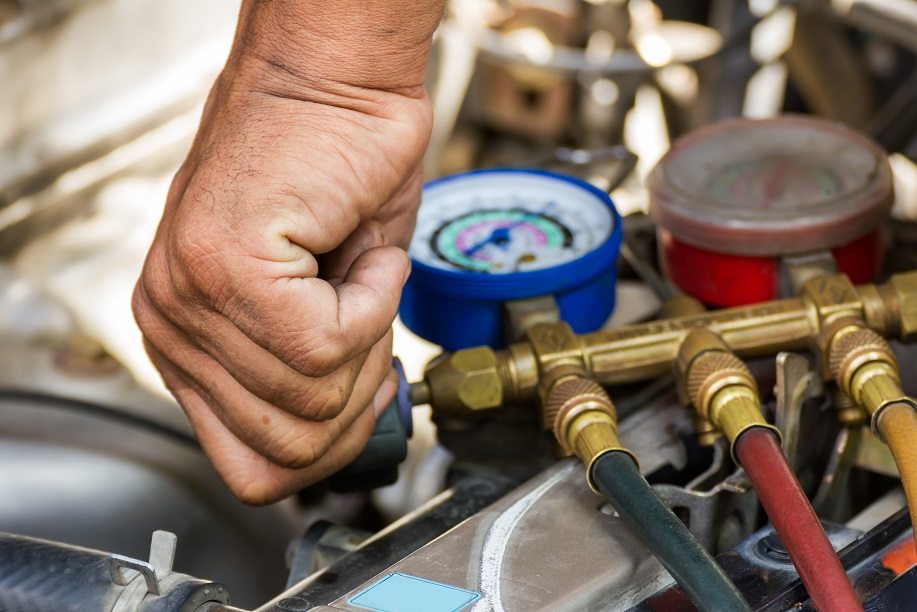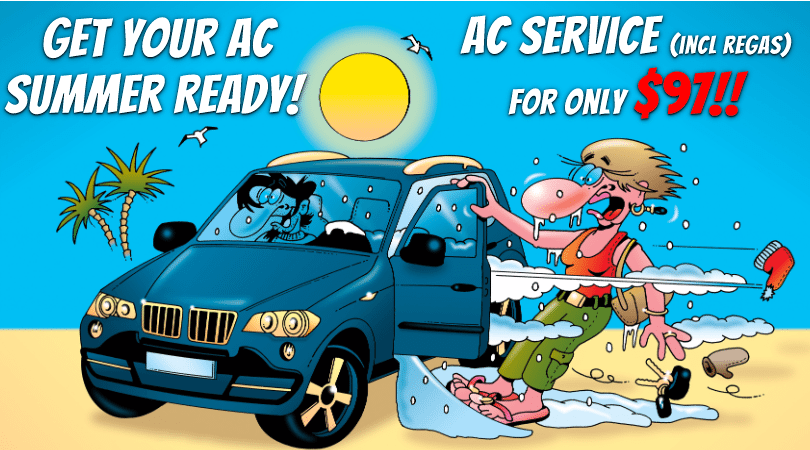The sun’s beating down, your AC is blowing nothing but hot air, you are getting desperate… In this situation, it might be tempting to look at a DIY solution to fix your Car’s AC problems, in the hope of saving a few bucks. But we’re here to explain why attempting a DIY AC regas to save a bit of coin, might end up costing you a whole lot more.
1. Health & Safety Concerns
One of the greatest concerns with these DIY kits is the risk of the R134a refrigerant coming into contact with the users’ skin or eyes, causing freeze burns. Due to the risks associated with handling the refrigerant, there is legislation in place to ensure all AC technicians have a Refrigerant Handling License from ARCTick. This ensures they are fully trained in the requirements and risks associated with handling the refrigerant.
2. Mixing Refrigerants
There are a few different types of refrigerant that could be in your vehicle. This depends on the age of the vehicle and whether it has been serviced before or not. If you aren’t 100% certain what refrigerant is in your AC system, you could be risking a very dangerous chemical reaction. Also, mixing refrigerants can cause some serious damage to the other components of your AC system. The safest option is to fully evacuate the system and replace with new refrigerant.
Another potential minefield is replacing refrigerant with M30, a hydrocarbon-based gas. This option might seem ideal as it is a cheaper than the usual R134a refrigerant, but these hydrocarbon-based refrigerants are potentially lethal. M30 is a highly flammable gas, making it very dangerous to have in your vehicle. Also, since the majority of cars are not engineered to use this type of gas, it may cause serious damage to your vehicle’s AC system. Using flammable refrigerant in your vehicle is not only putting yourself and your passengers at risk, it is also potentially hazardous for any technicians who work on your vehicle.
3. Leaks & Contaminants
Refrigerant does not evaporate, it leaks. As R134a is a greenhouse gas, leaking systems will have a direct impact on the environment. If your system is leaking, a DIY regas is only going to release more harmful refrigerant into the atmosphere.
Not only can refrigerant leak into the atmosphere, but contaminants can also leak into the rest of your AC system. Things like dirt, dust, leaves and mould can build up inside your AC system. These can clog up the filters, evaporator and other vital components in your AC. Even water can cause some serious damage if it gets in where it shouldn’t be. When water and refrigerant mix, it can lead to a whole array of problems such as corrosion and deterioration of internal parts. Costing you a whole lot more to repair than the few bucks you saved with the DIY regas.
4. Potential Damage
As we have already mentioned, attempting a DIY fix on your AC can lead to more extensive damage to the system components. Some of these DIY kits include a stop leak sealer which claims to ‘fix and prevent leaks’. In most cases, this sealer contaminates the whole system, and the leak will be the least of your problems after it also ruins your compressor, TX valve and drier too.
The AC system in your vehicle is a completely sealed system so ideally, they should not leak at all. It is common for some gas levels to drop over an extended period of time, but 9 times out of 10, a leak is present in the system that needs repairing. Any DIY option is only going to ‘fix’ the problem temporarily, and if by some miracle you don’t do further damage to your system, you’ll probably be back to square one sooner rather than later.
Leave it to the Experts
AC systems are complex and require a great deal of precision. When it comes to attempting a DIY AC regas, our advice is… don’t risk it. As qualified technicians, we recommend spending that little bit more to get your AC system fully checked out by a licenced professional. Not only will you save yourself a whole heap of time, you could also save yourself a bunch of money in the long run. You will also have the piece of mind knowing your car’s AC system is safe and not at risk of further damage.





Great article I sell a lot of air conditioning system in Perth in the diy market for home air conditioning. When it comes to any thing refrigeration. I always insist they have qualified people perform the task or warranty is void. To date I have not had any issues.
Thanks again for the great information.
Gerard